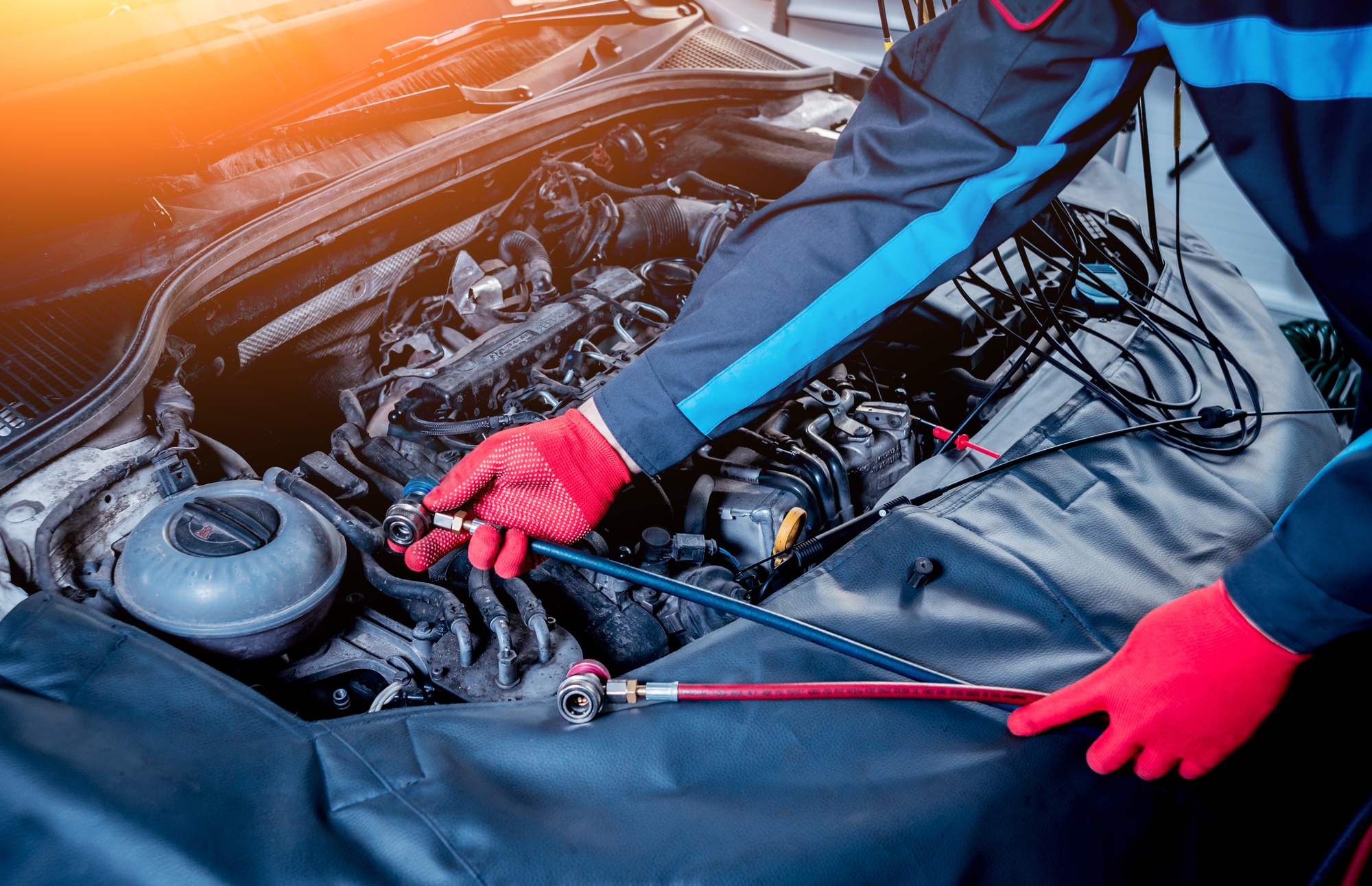Do you know when it’s for air conditioning service for your car? The last thing you want to experience is a broken AC right in the middle of a heat wave, and those are common in Arizona. But what signs should you look for that will tell you it’s time for maintenance?
Your car’s air conditioning system is one of its most frequently used components, yet we often take it for granted. It’s especially easy to forget about AC maintenance until something goes wrong. Learning to recognize the signs that may indicate your vehicle needs servicing can potentially help save money and frustration in the long run. It could even save your life.
How to Determine When Your Car Needs Its Air Conditioning Serviced
When it comes to automobile maintenance, the air conditioner is often neglected – at least until it starts failing. A reliable AC system has many benefits: it helps keep you cool in hot weather and can also help reduce fogging of your windows, potentially making driving safer. But like any machine, the parts will eventually wear out over time and need servicing. If you’re wondering whether your car’s air conditioner needs servicing, there are a few telltale signs to look out for:
- The air coming from the vents is weak or non-existent,
- Airflow blowing out of the vents has noticeably decreased,
- The AC unit blows warm or hot air,
- You experience an increase in temperature and humidity inside the car,
- Fluctuating air temperatures coming out of the vents,
- Weird odors are coming from the dashboard,
- Strange smells from the vents, or
- Condensation is building up inside the vehicle.
If you notice any of these signs, it’s time to take your car in for servicing. A qualified technician will inspect the entire system for any issues and make sure all components are working properly.
What’s Included in Air Conditioning Service
At Hi-Tech Car Care, we have the necessary tools and experience to diagnose, locate and repair any issues you may have with your car’s air conditioner. We will thoroughly inspect the system for leaks and assess the proper performance of its compressor, condenser, expansion valve, evaporator, and receiver/dryer. Other things we look at include:
- Refrigerant Levels: Car air conditioner servicing may involve topping up existing refrigerant levels or flushing the system to remove pollutants, then restoring including newly added refrigerant. Generally, only topping off is needed unless components have been removed for repairs.
- Freon Recovery: We have EPA-certified equipment for freon recovery; our experienced technicians can perform repairs and replace defective components. Leaks are also identified and repaired promptly.
- Heating/Heater Core: Heat for comfort can be extracted from the coolant used to cool your vehicle. The heater core, akin to radiators but much smaller, circulates hot water. Plugged heater cores are a common source of issues; furthermore, low coolant or a defective cooling system thermostat can also be causes.
- Blower: The blower is located in the passenger side of the dashboard. When cooling or heating is requested, air passes through either the evaporator or the heater core, respectively. If it fails, we can replace it.
- Climate Controls: The climate controls on the dashboard allow you to choose between heating or cooling. There is generally a dial to make more in-depth changes, such as the blowing power and how hot or cold the air should be. Most cars use electrical circuits and mechanical linkages for the controls, though some may use pneumatic circuits. We guarantee to identify and solve your problem, leaving you driving in comfort.
Don’t Wait for Your Air Conditioning to Fail
The best way to avoid major repairs is by getting regular maintenance done on your car’s air conditioning system. Talk to your mechanic about how often you should get your air conditioning serviced, typically every two years or so, depending on how often you use it and other factors. Regular inspections can help ensure that your vehicle’s AC is running efficiently and safely all year long! Schedule your appointment today.






